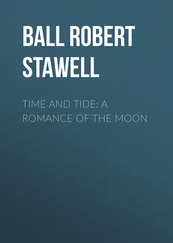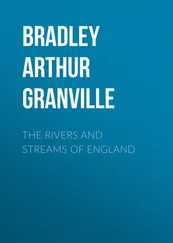Thomas Bulfinch - Oregon and Eldorado; or, Romance of the Rivers
Здесь есть возможность читать онлайн «Thomas Bulfinch - Oregon and Eldorado; or, Romance of the Rivers» — ознакомительный отрывок электронной книги совершенно бесплатно, а после прочтения отрывка купить полную версию. В некоторых случаях можно слушать аудио, скачать через торрент в формате fb2 и присутствует краткое содержание. ISBN: , Жанр: foreign_antique, foreign_prose, на английском языке. Описание произведения, (предисловие) а так же отзывы посетителей доступны на портале библиотеки ЛибКат.
- Название:Oregon and Eldorado; or, Romance of the Rivers
- Автор:
- Жанр:
- Год:неизвестен
- ISBN:http://www.gutenberg.org/ebooks/38774
- Рейтинг книги:3 / 5. Голосов: 1
-
Избранное:Добавить в избранное
- Отзывы:
-
Ваша оценка:
- 60
- 1
- 2
- 3
- 4
- 5
Oregon and Eldorado; or, Romance of the Rivers: краткое содержание, описание и аннотация
Предлагаем к чтению аннотацию, описание, краткое содержание или предисловие (зависит от того, что написал сам автор книги «Oregon and Eldorado; or, Romance of the Rivers»). Если вы не нашли необходимую информацию о книге — напишите в комментариях, мы постараемся отыскать её.
Oregon and Eldorado; or, Romance of the Rivers — читать онлайн ознакомительный отрывок
Ниже представлен текст книги, разбитый по страницам. Система сохранения места последней прочитанной страницы, позволяет с удобством читать онлайн бесплатно книгу «Oregon and Eldorado; or, Romance of the Rivers», без необходимости каждый раз заново искать на чём Вы остановились. Поставьте закладку, и сможете в любой момент перейти на страницу, на которой закончили чтение.
Интервал:
Закладка:
The following extract imparts some traits of Indian manners: —
"Nov. 22. – This morning, the sentinel informed us that an Indian was about to kill his wife near the fort. We went to the house of our interpreter, where we found the parties, and, after forbidding any violence, inquired into the cause of his intending to commit such an atrocity. It appeared that, some days ago, a quarrel had taken place between him and his wife, in consequence of which she had taken refuge in the house where the wives of our interpreter lived. By running away, she forfeited her life, which might be lawfully taken by the husband. He was now come for the purpose of completing his revenge. We gave him a few presents, and tried to persuade him to take his wife home. The grand chief, too, happened to arrive at the same moment, and reproached him with his violence; till at length husband and wife went off together, but by no means in a state of much apparent connubial felicity."
"Dec. 12, 1804. – The thermometer at sunrise was thirty-eight degrees below zero; on the 16th, twenty-two below; on the 17th, forty-five below. On the 19th, it moderated a little. Notwithstanding the cold, we observed the Indians at the village engaged, out in the open air, at a game which resembles billiards. The platform, which answered for a table, was formed with timber, smoothed and joined so as to be as level as the floor of one of our houses. Instead of balls, they had circular disks made of clay-stone, and flat like checkers."
"Dec. 22. – A number of squaws brought corn to trade for small articles with the men. Among other things, we procured two horns of the animal called by the hunters the Rocky-Mountain sheep, and by naturalists the argali. The animal is about the size of a small elk or large deer; the horns winding like those of a ram, which they resemble also in texture, though larger and thicker.
"Dec. 23. – The weather was fine and warm. We were visited by crowds of Indians of all description, who came either to trade, or from mere curiosity. Among the rest, Kagohami, the Little Raven, brought his wife and son, loaded with corn; and she entertained us with a favorite Mandan dish, – a mixture of pumpkins, beans, corn, and choke-cherries, all boiled together in a kettle, and forming a composition by no means unpalatable.
"Dec. 25. – Christmas Day. We were awakened before day by a discharge of fire-arms from the party. We had told the Indians not to visit us, as it was one of our great Medicine-days; so that the men remained at home, and amused themselves in various ways, particularly with dancing, in which they take great pleasure. The American flag was hoisted for the first time in the fort; the best provisions we had were brought out; and this, with a little brandy, enabled them to pass the day in great festivity."
"Dec. 27. – We were fortunate enough to have among our men a good blacksmith, whom we set to work to make a variety of articles. His operations seemed to surprise the Indians who came to see us; but nothing could equal their astonishment at the bellows, which they considered a very great Medicine ."
"Kagohami came to see us early. His village was afflicted by the death of one of their aged chiefs, who, from his account, must have been more than a hundred years old. Just as he was dying, he requested his grand-children to dress him in his best robe, and carry him up to a hill, and seat him on a stone, with his face down the river, towards their old village, that he might go straight to his brother, who had passed before him to the ancient village underground."
"Oheenaw and Shahaka came down to see us, and mentioned that several of their countrymen had gone to consult their Medicine-stone as to the prospects of the following year. This Medicine-stone is the great oracle of the Mandans, and whatever it announces is believed with implicit confidence. Every spring, and on some occasions during the summer, a deputation visits the sacred spot, where there is a thick, porous stone twenty feet in circumference, with a smooth surface. Having reached the place, the ceremony of smoking to it is performed by the deputies, who alternately take a whiff themselves, and then present the pipe to the stone. After this, they retire to an adjoining wood for the night, during which it may be safely presumed all the embassy do not sleep; and, in the morning, they read the destinies of the nation in the white marks on the stone, which those who made them are at no loss to decipher. The Minnetarees have a stone of a similar kind, which has the same qualities, and the same influence over the nation."
"Jan. 10, 1805. – The weather now exhibited the intensity of cold. This morning, at sunrise, the mercury stood at forty degrees below zero. One of the men, separated from the rest in hunting, was out all night. In the morning he returned, and told us that he had made a fire, and kept himself tolerably warm. A young Indian, about thirteen years of age, came in soon after. He had been overtaken by the night, and had slept in the snow, with no covering but a pair of deer-skin moccasons and leggings, and a buffalo-robe. His feet were frozen; but we restored them by putting them in cold water, rendering him every attention in our power. Another Indian, who had been missing, returned about the same time. Although his dress was very thin, and he had slept in the snow, without a fire, he had not suffered any inconvenience. These Indians support the rigors of the season in a way which we had hitherto thought impossible."
"Our supplies are chiefly procured by hunting; but occasional additions are made by the Indians, sometimes in the way of gifts, and sometimes in exchange for the services of the blacksmith, who is a most important member of the party.
"Feb. 18. – Our stock of meat is exhausted, so that we must confine ourselves to vegetable diet till the return of our hunters. For this, however, we are at no loss, since yesterday and to-day our blacksmith got large quantities of corn from the Indians who came to the fort.
"Sunday, March 3. – The men are all employed in preparing the boats. We are visited by a party of Indians with corn. A flock of ducks passed up the river to-day.
"Wednesday, 13. – We had a fine day, and a south-west wind. Many Indians came to see us, who are so anxious for battle-axes, that our smiths have not a moment's leisure, and procure us an abundance of corn."
"March 25, 1805. – A fine day, the wind south-west. The river rose nine inches, and the ice began breaking away. Our canoes are now nearly ready, and we expect to set out as soon as the river is sufficiently clear of ice to permit us to pass.
"March 29. – The ice came down this morning in great quantities. We have had few Indians at the fort for the last three or four days, as they are now busy in catching the floating buffaloes. Every spring, as the river is breaking up, the surrounding plains are set on fire, and the buffaloes tempted to cross the river in search of the fresh grass which immediately succeeds to the burning. On their way, they are often insulated on a large cake or mass of ice which floats down the river. The Indians now select the most favorable points for attack, and, as the buffalo approaches, run with astonishing agility across the trembling ice, sometimes pressing lightly a cake of not more than two feet square. The animal is, of course, unsteady, and his footsteps insecure, on this new element, so that he can make but little resistance; and the hunter who has given him his death-wound paddles his icy boat to the shore, and secures his prey."
Читать дальшеИнтервал:
Закладка:
Похожие книги на «Oregon and Eldorado; or, Romance of the Rivers»
Представляем Вашему вниманию похожие книги на «Oregon and Eldorado; or, Romance of the Rivers» списком для выбора. Мы отобрали схожую по названию и смыслу литературу в надежде предоставить читателям больше вариантов отыскать новые, интересные, ещё непрочитанные произведения.
Обсуждение, отзывы о книге «Oregon and Eldorado; or, Romance of the Rivers» и просто собственные мнения читателей. Оставьте ваши комментарии, напишите, что Вы думаете о произведении, его смысле или главных героях. Укажите что конкретно понравилось, а что нет, и почему Вы так считаете.












